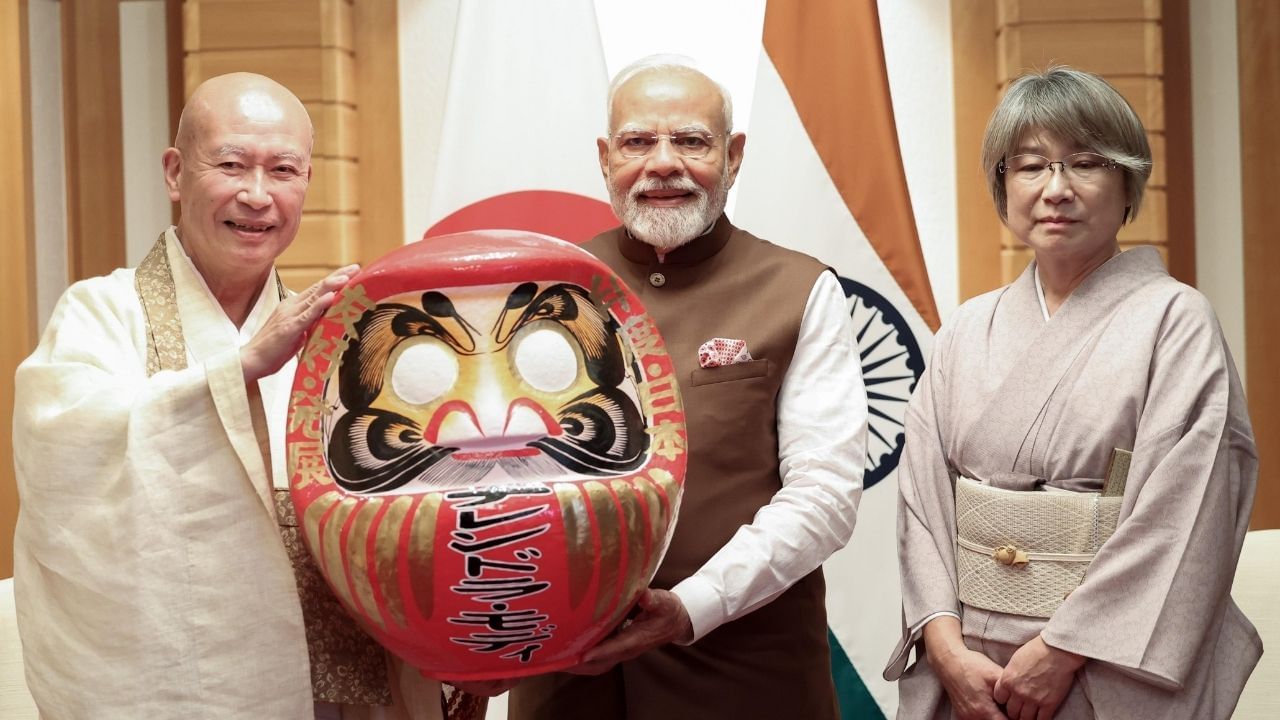Tokyo: In a gesture rich with cultural symbolism, Rev. Seishi Hirose, Chief Priest of Darum-ji Temple in Japan, presented a Daruma Doll to Prime Minister Narendra Modi during his ongoing visit to Tokyo. The exchange served not only as a symbol of goodwill but also as a reminder of the deep-rooted historical and spiritual links between India and Japan.
The Daruma Doll is an iconic Japanese cultural symbol, widely regarded as a token of perseverance, resilience, and good fortune. Traditionally, when a person sets a goal, one of the doll’s blank eyes is filled in; once the goal is achieved, the second eye is completed. Its weighted, rounded bottom ensures that the doll always returns upright when tipped over, embodying the Japanese proverb: “Fall seven times, stand up eight.”
What makes this exchange even more significant is the Daruma’s connection with India. The doll is modelled after Bodhidharma, known in Japan as Daruma Daishi, an Indian monk from Kancheepuram (Tamil Nadu). Bodhidharma, credited as the founder of Zen Buddhism, travelled to China and later influenced Japanese spiritual traditions. Legend holds that he meditated for nine continuous years, facing a wall, with his limbs folded. This explains why Daruma dolls are limbless and round in shape, and why their eyes remain blank until a purpose gives them life.
By presenting the Daruma Doll, Rev Hirose not only shared an emblem of Japanese culture but also highlighted the shared Buddhist heritage that binds India and Japan. For PM Modi, who has often emphasised the importance of cultural diplomacy, the moment underlined how spiritual traditions can strengthen contemporary partnerships.
